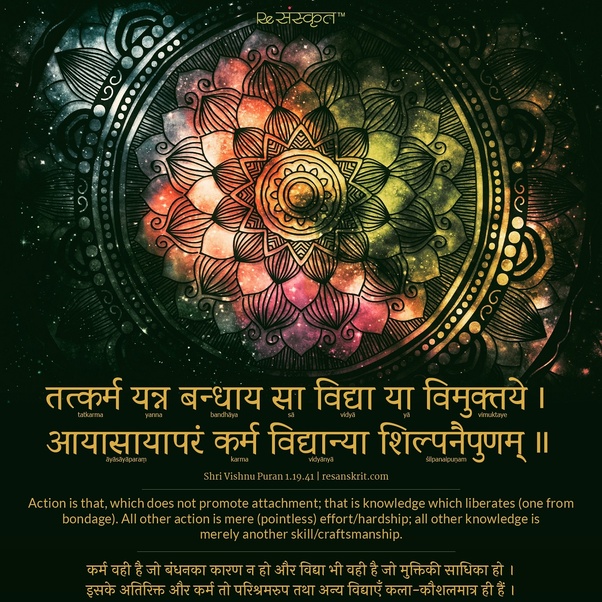Allameh Tabatabai has a famous sentence that says: the scent of monotheism can be heard from the Upanishads.
Upanis̩adic literature is the great treasure of spiritual wisdom in the Indic knowledge system. It is denoted as the Jñāna-Kān̩d̩a in the Vedic Literature. Basically spiritual knowledge is preached in this literature; therefore it is also called as Adhyātman. The main subject of the Upanis̩adic literature is to establish non-duality between the Creator and the Creation i.e. Advaita of the Brahman and the Jeeva.
However, there are more than two hundred Upanis̩ads available at present and many more have been cited in different texts, but the great sage Acārya Śam̩kara has written commentaries on 11 Upanis̩ads named as Īśa, Ken̩a, Kat̩ha, Praśna, Mun̩d̩aka, Mān̩dūkya, Aitareya, Taittirīya, Chāndogya, Br̩hadāran̩yaka and Śwetāśwatar. These Upanis̩ads are classified as the Principal Upanis̩ads.
In fact, the Upanis̩adic literature does not belong to any distinct religion, but it is, by large a universal quest for spiritual wisdom. The Upanis̩adic message is not exclusively authorized by any specific cast, creed, religion, gender and sect of belief. The message of Upanis̩ads is universal and useful for one and all. This is the reason that the Mughal crown prince Dārā Śikoha got attracted at this knowledge system and indulged himself into the quest of spirituality. He has collected the thoughts of almost 52 Upanis̩ads and translated them in Persian in his widely cited text “Śirra-e-Akabara” i.e. The Great Mystery.
The western world has also been attracted towards the Upanis̩adic teachings for a very long time. It could be well visualized in the poem “The waste land” of the renowned English poet T. S. Eliot. There are a large number of western scholars who have been emphatically attracted towards the Upanis̩adic wisdom. Some famous names could be counted as Anquetil-Duperron, Robert Ernest Hume, F. W. Joseph Schelling, Max Muller, Moriz Winternitz, Paul Deussen, Henry Thomas Colebrook, A. A. McDonell, Aldus Huxley, Friedrich Schlegel etc. One of the most famous German Philosophers Arthur Schopenhauer has rightly said in his famous quote “In the whole world there is no study so beneficial and so elevating as that of the Upanis̩ads. It has been the solace of my life, it will be the solace of my death.”
The attraction of the epistemology and the ontology of the Upanis̩adic literature are still pertinent and it has become even more relevant in the present scenario.
Aim:
The Aim is to foster an intellectual and cultural dialogue between Indian and Iranian cultural and intellectual traditions in order to facilitate respect towards multiculturalism, peace and peaceful coexistence.
Objectives:
- Comparative study of Upanishads and Islamic philosophy and Sufism
- Dialogue between Indian and Iranian culture.
A) The Upanishadic Philosophy and Islam
Upanishads, Holy Quran and Srimad Bhagwadgita
The philosophy of life, death and salvation in Islam, the Upanishads and other religions of India
The philosophy of creation of human in Islam, the Upanishads and other Indian religions
The place, role and rights of the human in Indian religions and Islam
Metaphysics in Islam and Hinduism
Spirituality and ethics in the holy Quran and Indian scriptures
Peace and non-violence in Islam and Indian religions
Asceticism, fasting and practices in Upanishads and Islam
Monotheism and knowledge in Upanishads and Islam
Existential hierarchy in Islam and Indian religions
Critique of Upanishads: ethical, spiritual, literary, translation and interpretation
The works of non-Muslim Islamic scholars on Upanishads
B) Dara Shukoh, Upanishads and Islam
Dara Shukoh, Upanishads and the cultural/scientific exchanges between world of Islam and India in the Mughal age.
Contribution of Dara Shukoh in inter-religious convergence, inter-faith unity and solidarity, and peaceful co-existence
Dara Shukoh: His social, ethical characteristics, Anti-hate or religious tolerance, Islamic-Indian mystical convergence, inter-religious perspective
Dara Shukoh’s writings: Bibliography; comprehensive and exquisite analysis of Safineh-Auliya, Sakineh-Auliya, Tahghigh Hosnan Arefin, Haghnamah, Majma-al Bahrain etc.
Study of Ya Exir Azam, the Diwan of Dara Shukoh
Dara Shukoh’s mystical system vis a vis mysticism in other Indian religions
Dara Shukoh’s interpretation of Islam
Dara Shukoh’s beliefs: Elements in Islamic and Vaisheshaka theories; the holy recitation in Islam and Ajapay in Indian religions
Religious reform movements in the times of Dara Shukoh.
V) Fraternity between Islamic and living Indian faiths
The culture of Ashura in Iran and India: Philosophy, art and architecture; the role of non-Muslims and Husseini Brahmanas in the observances
Husseini Brahmanas: antecedents, beliefs and bibliography of works
Comparative and compatible beliefs in Islam and other Indian religions: religious festivities, development of spirituality, pilgrimage, religious etiquette, philosophy and culture of prayers, congregation and ceremonies in places of worship, issues of miracles and beliefs, the emergence of Messiah in different Indian religions, the notions of good, evil, deceit, truth
Role of religion in the life and society: all religious communities in India and Iran
Religious reform movements in India: contributions of Gandhi, Raja Ram Mohan Roy and other social reformers.
Islam and Ahl-o-Kitab and the Unity of Religions in India
Hymn poets (Hamdsoras and Monagabatsoras) and renowned scholars of Islam in the other religions of India
Translation of Islamic texts (the Holy Quran, Nahj-ol-balaghah, Mafatih prayer book) and Tazkareh and Persian manuscripts and the interpretation in India
We welcome research papers and books on this field, for publication by the London Academy of Iranian Press.
Members of the department of comparative Upaniśadic literature and Islamic philosophy and Sufism at the London Academy of Iranian,
Dr Farzaneh Azam Lotfi, Faculty member of University of Tehran
Dr Rajesh Sarkar
Dr Seyed Salman Safavi
Seyed Sadreddin Safavi
Written by Dr Farzaneh Azam Lotfi

